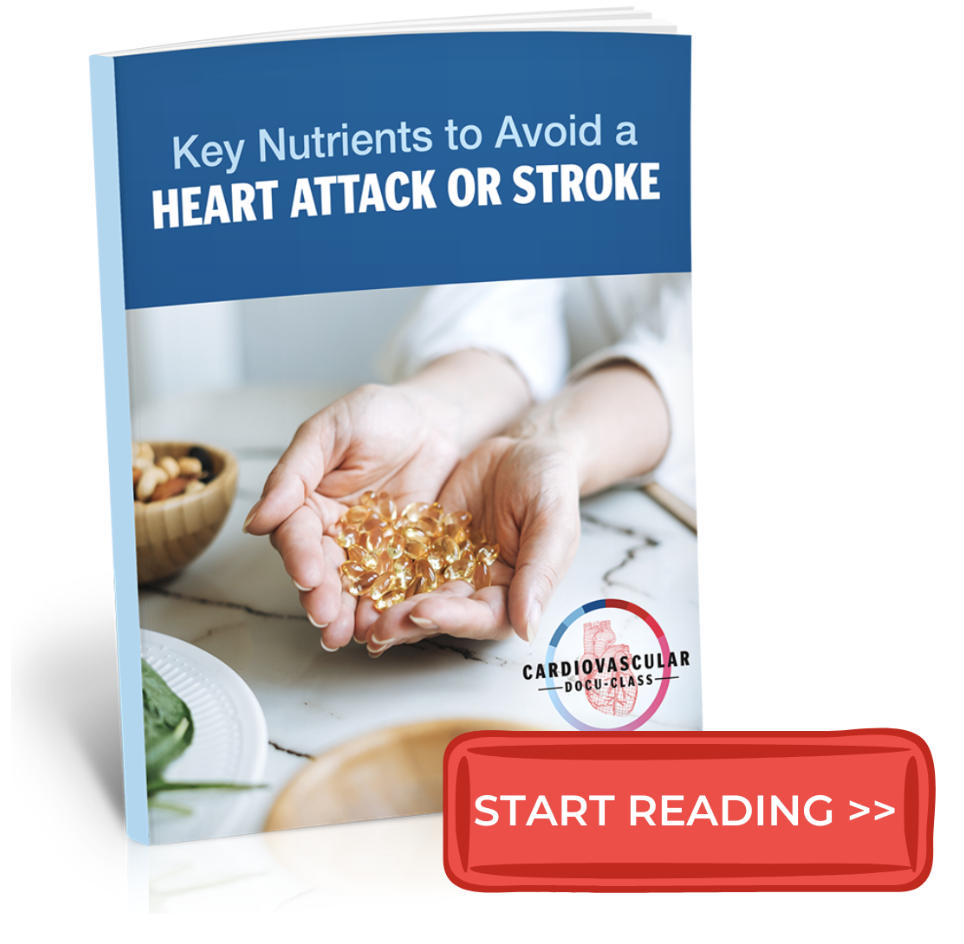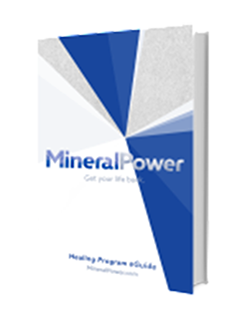Transcript
Last week’s goals were to cut out gluten and listen to your body when you’re eating. Did you cut out the gluten? Were you able to bag the bagels, ditch the bread, and toss your cookies? If you did, you probably felt a lot better mentally and physically! A lot of mysterious symptoms begin disappearing when you avoid gluten. I forgot to mention that even people that don’t have gluten sensitivity issues still show inflammation in their gut after gluten consumption. It takes years for this inflammation and gluten irritants to cause disease. By the time you manifest symptoms, it can be too late to reverse the illness. Many think that autoimmune disease and arthritis are in part caused by gluten. It’s a real nasty substance. Makes you want to try and cut it now, huh?
Did you begin listening to your body and cravings? Did you experiment with foods and see how they made you feel? Did anything surprise you? Did it surprise you to realize how much food affects your mood and energy? It really has a profound effect!
Great! Let’s get started with today’s lessons on fats, the good vs. the bad, dairy, weight loss, sugar, fruit, and artificial sweeteners.
Fats
Fat is extremely important in your diet. A human brain is 60% fat. Every cell contains fat. Many hormones and neurotransmitters are made of fats. The simplistic idea that eating fat makes you fat is wrong. Consuming processed simple carbohydrates and sugar causes obesity. Every health problem can be linked to abnormalities in fat consumption: lots of bad unnatural fats and deficiencies in good natural fats. Fat in incredibly satiating and prevents hunger – it’s a dieter’s friend! The amount of fat you need depends upon your individual make up. Some people eat 70-80% of their diet from fat! You’ll have to play around with it to find the amount that’s right for you. Do not ever buy another fat free product again! I promise that fat won’t make you fat! I eat butter, olive oil, avocados, meats, cheese and nuts all day long and I don’t gain weight.
Good Fats
The bulk of fats consumed should be fresh meats, fats rendered from meats, egg yolks, and dairy fats (butter, cream, and ghee/clarified butter). You should consume natural oils in their natural state.
Nuts are a great source of healthy fats. Nut butters are easier for your body to digest. Sprouted, or soaked, nuts and nut butters are the healthiest, containing exponentially more nutrients and more easily assimilated partially digested proteins than unsprouted raw nuts. Simply soak raw nuts overnight in water and enjoy in the morning! Roasting destroys all the healthy oils in the nuts and roasted nuts won’t sprout.
Good Plant Oils
Plants oils that are allowed include olive oil, coconut oil, walnut, borage, pumpkin seed, evening primrose, and hemp oil. All other oils are inflammatory. Only eat cold-pressed oils. Do not ever buy refined, heated, oils in clear bottles – they go rancid when exposed to light or heat, ‘light’ oils- these have been refined.
Flax oil has a great reputation, but in reality 80% of people don’t have the enzyme needed to turn its fats into EPA and DHA. Don’t bother with it. Better to eat the flax seeds. Flax oil goes rancid after a couple months. It’s extremely delicate. I don’t bother with it.
Saturated Fats
What about the deadly saturated fats? Don’t they cause heart disease? NO! Saturated Fat is good for you! This false information is the result of the relentless efforts by the food industry to sell margarine (high profit) and fight their competition – the natural fats like butter (low profit). However, Your body cannot survive without saturated fats.
It’s easy just to lump all saturated fats into one “heart-threatening” group, but the reality is that there are many different kinds of saturated fats in foods. For example, a handful of studies show that while coconut oil, rich in lauric acid, raises blood levels of LDL (“bad”) cholesterol, it also raises HDL (“good”) cholesterol slightly. Stearic acid, a type of saturated fat that makes up about half the fat in dark chocolate and accounts for 15 percent of the fat in beef, doesn’t raise LDL at all. Experts consider stearic acid “neutral” when it comes to cardiovascular risk: it doesn’t help, but it doesn’t hurt either.
On the flip side, some saturated fats appear more likely than others to cause the buildup of fatty plaque in arteries. Palmitic acid, which is the main fat in palm oil and another saturated fat present in beef, is one such fat. But the fact that beef contains both “bad” palmitic acid and “neutral” stearic acid underscores the point that foods rich in saturated fats contain a mixture of different types.
Bad Fats
Vegetable oils (except olive oil), cooking oils, margarines, butter replacements, spreadable butter, bottled salad dressings, vegetarian fats and shortenings, hydrogenated oils, and shortening are highly processed. They are alien to human physiology and should NEVER be consumed. Cavemen did not eat vegetable oils, thus our bodies are not evolutionarily suited to process them. Vegetable oil (except olive) is the principal source of most people’s inflammation. They contain omega 6’s, which are inflammatory and block absorption of omega 3’s that are anti-inflammatory.
The basis of most processed fats is vegetable oils (corn, soy, sunflower, canola, cottonseed). These oils are very unstable, easily damaged by high temperatures, pressure, and the chemical solvents used to extract them, creating fatty acids or even trans fats that are very harmful to your health. You find these in most processed foods.
Trans fats
Trans fats are the plague of our society. Trans fats are DEADLY. If trans fats were eliminated from the food chain, heart disease would decrease by 50%. This product is used to increase a food’s shelf life and profits for the manufacturer – with no regard to how they affect your health. Trans fats are produced when hydrogen is injected into the vegetable oils in the presence a catalyst like aluminum, nickel, and other toxic heavy metals. Remnants of these toxic metals end up in the final product and your body when you eat them. Trans fats occupy the place of natural fats in the body and the cells, which them rendered unable to do their jobs – essentially disabling them. Trans fats are like plastics and gum up your body’s cells and metabolism. All organs and tissues in the body are affected, especially your brain, given that it’s 60% fat. Trans fats have powerful immune-suppressing ability, and have been implicated in causing diabetes, atherosclerosis, cancer, and neurological and psychiatric conditions. They interfere with pregnancy, normal production of hormones, ability of insulin to enter the cells, and damage the liver and kidneys.
Trans fats are in EVERYTHING disguised under partially hydrogenated oils, shortening, fractionated oil, and interesterified fats (worse than trans fats), di- and monoglycerides. Read labels. Labels that read ‘No Trans Fats’ or say zero trans fats on the food label can be very misleading. Manufacturers are legally allowed to say ‘No Trans Fats’ on a label if their product contains less than .5 grams of trans fats per serving.
Trans fats are in 70% of boxed, processed foods you find in most major grocery stores. Trans fats are in baked goods like bread, cookies, tortillas, crackers, chips, cereals, candy bars, and many processed foods. Trans fats are also in that breadbasket brought to you by most restaurant chains. Ask your server for an ingredient list before indulging.
Dairy
This includes milk, cream, sour cream, cheese, butter, ghee, kefir and yogurt. It may be best avoided or enjoyed occasionally. Dairy poses problems for a lot of people for many different reasons. We never ate it until animals were domesticated very recently in history. Humans lived for millions of years without dairy. But those cheese plates are so good!
Many people are lactose intolerant or have a casein – dairy protein – sensitivity. Dairy, organic or no, has high hormone levels that affect your hormones as many milking cows are pregnant. Milk also contains blood and pus since many cows have an infection in their udders, though this is more likely with nonorganic milk. Nonorganic milk contains a whole host of nasty contaminants.
Eighty-five percent of nonorganic milk contains rGBH, aka cow crack, which is a genetically modified synthetic growth hormone made by Monsanto, used to increase a cow’s milk production. rGBH is shown to increase inflammation markers in humans. Nonorganic milk also contains antibiotics, other growth hormones, and GMO feed fed to cows, which contain pesticides that you get to eat too! Ew! Just buy organic already!
When I eat dairy, I eat RAW, unpasteurized organic diary. Raw milk can be usually be tolerated by people who thought they had a dairy intolerance. People are drinking raw milk because pasteurization and homogenization deforms the proteins and the fats in the milk, making them very unhealthy, unrecognizable to the body and difficult to digest. This is actually why many people have what they think is a lactose intolerance.
Raw dairy, especially raw butter, contains essential fat-soluble vitamins A, D, E, and K, most of which are destroyed during pasteurization. These fat-soluble vitamins are necessary to absorb vitamins and minerals from vegetables. I put raw butter on all my food.
I’ll admit I was a bit freaked out by potential bacteria in raw milk when I first tried it, but I’ve never had a problem with it. Salmonella, E. coli and many other bacteria cannot survive in raw milk; beneficial bacteria, enzymes, and immune complexes naturally present in raw milk destroy them. If these pathogenic microbes get into pasteurized milk, however, they thrive because the enzymes and beneficial bacteria have been destroyed by pasteurization. If you’re still worried about bacteria, you can kill it with a few drops of 35% food grade hydrogen peroxide.
Dying to try raw milk? You won’t find raw dairy products in major stores, but at farmer’s markets, your local dairy farm, or small natural health food stores. For a list of organic raw dairy farmers, see www.westonprice.org and www.realmilk.com.
Fermented Dairy
Fermented and cultured raw dairy products like butter, sour cream, yogurt, and kefir are best, as the lactose proteins have been broken down making them even easier to digest. These dairy foods are high in enzymes and vitamins destroyed by pasteurization.
Non-Dairy alternatives
Being Paleo, I try not to eat Dairy. Remember, the majority of the billions on this planet never eat dairy. So, what do you drink? Substitute almond milk, hemp milk (my favorite), hazelnut milk, cashew milk, coconut milk, rice milk cheese, almond milk yogurt. Explore! Never substitute margarine for butter.
Beware of a nasty ingredient in organic and nonorganic dairy and nut milks called carrageenan. Carrageenan causes gastrointestinal distress and even colon cancer. It should not be in organic foods, but somehow was able to make it on the list of acceptable ingredients in certified organic foods. Avoid this ingredient by reading labels and checking if your milk is on the Cornucopia Institute’s Guide to Avoid Carrageenan. The only non-dairy milks I have found that do not contain carrageenan are the Whole Foods Brand. Or you can make it at home using my recipe for Homemade Nut Milk on myersdetox.com™.
Goals
- Eliminate Grains. Now that you’ve tried going gluten free, let’s try to take it a step further and eliminate most grains. Rice is the best of the bunch, but the others cause problems for a lot of people. Many report that their digestive issues, fatigue, brain fog, and other issues finally clear only after they cut out grains. Just try it for the next two weeks. I guarantee you you’ll lose your muffin top, too!
- Trans Fats. Let’s get all the deadly trans fats out of your diet. Call a moratorium on ALL trans fats. Become a food detective. Begin reading every label of every food you plan to buy. Look up the ingredients of foods you eat at fast food or other restaurants you go to. Learn what foods to avoid. This is the single most important thing you can do to improve your health!













